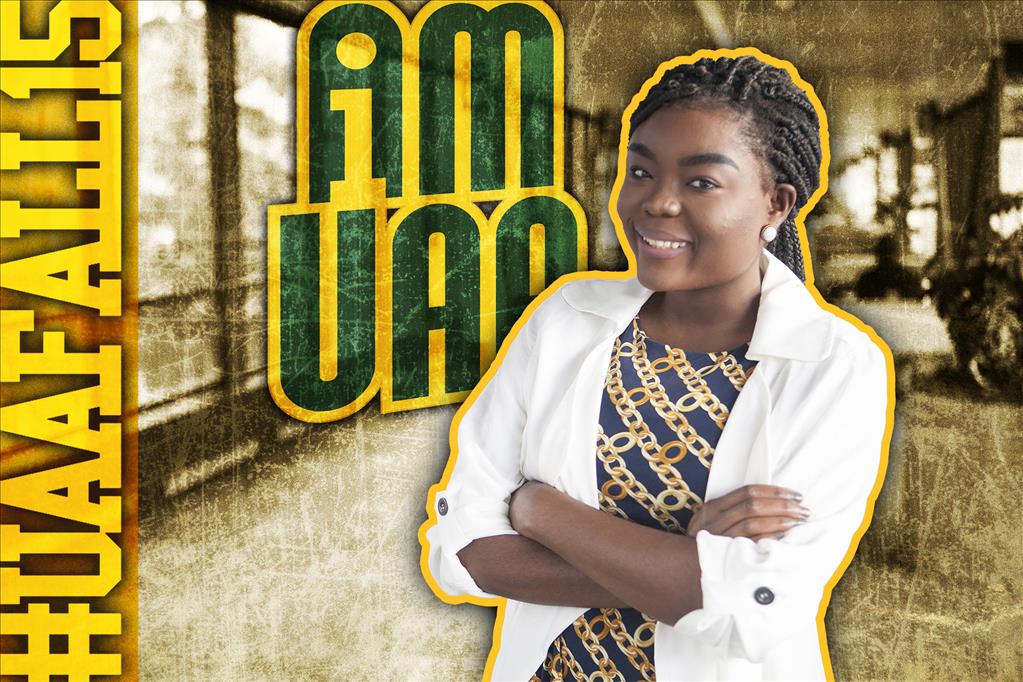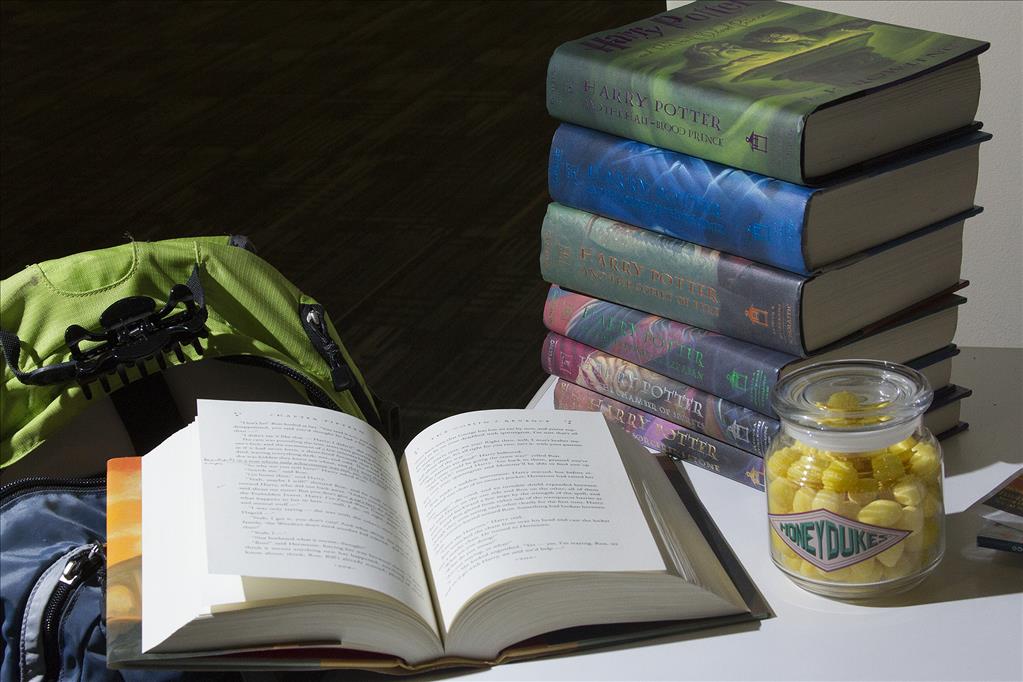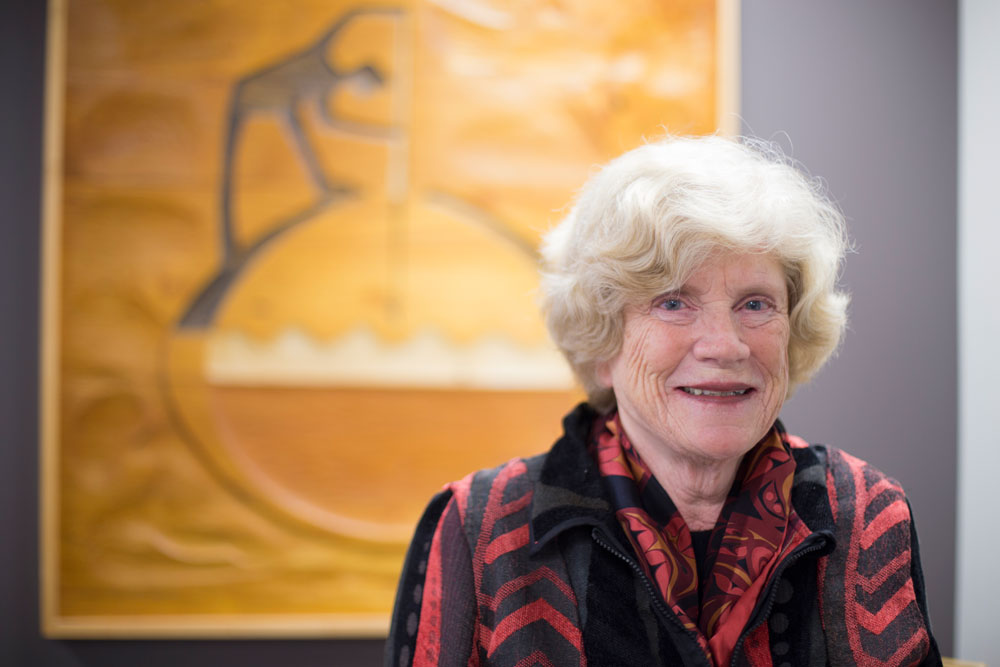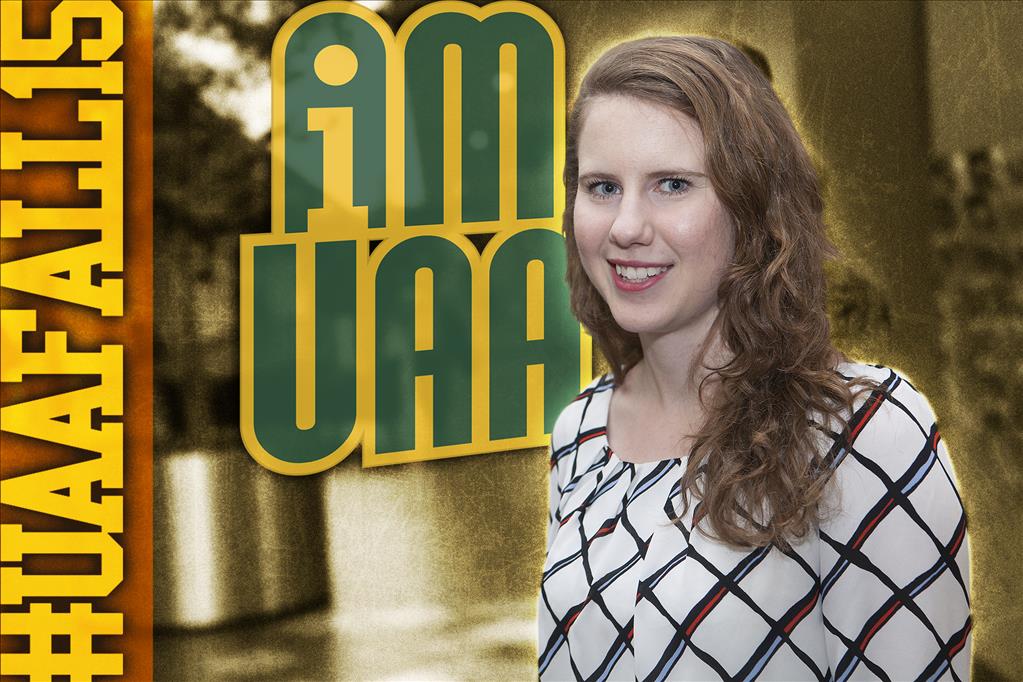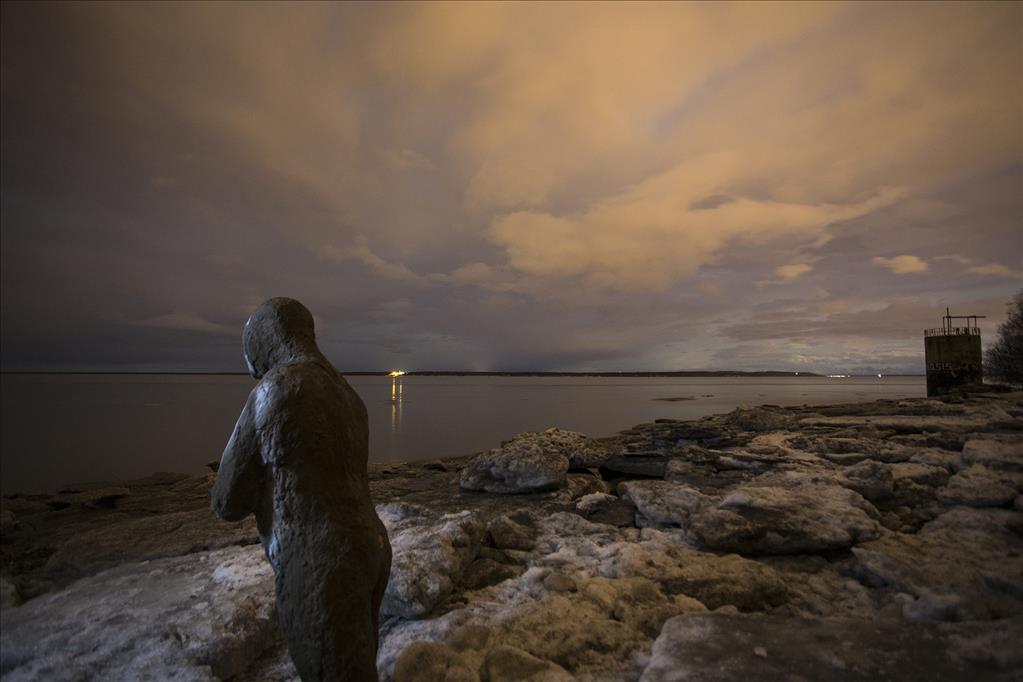UAA team off to battle knotty ethical issues at national competition
by Kathleen McCoy |
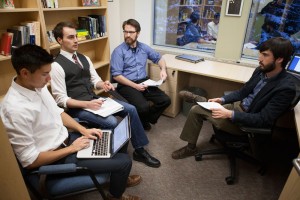
UAA's ethics gladiators are (l-r) Jacob Shercliffe, Parker Dahl and Daniel Knudsen. They analyze cases with adviser and ethics professor Joel Potter. (Photo by Philip Hall/University of Alaska Anchorage)
Pull on your ethics thinking cap and take these contemporary dilemmas for a spin:
Big Farma: Is averting a global food crisis important enough to turn agricultural data over to seed companies so they can sell it back to farmers?
Stealth journalism: Is an undercover reporter who roams a high school to test its security (causing a lockdown and moments of parental, teacher and student panic) acting ethically, or capitalizing on fear of school shootings for the financial benefit of a media company?
Show me the money: Should the marketplace decide the value of workers and what they produce, or is failure to set a minimum wage human exploitation?
These are abbreviated versions for three of the 15 ethics cases a team of UAA students will tackle with 32 other colleges next Sunday, Feb. 22, at the National Intercollegiate Ethics Bowl in Costa Mesa, Calif.
Right now, UAA's team is in training. Every Thursday for the past few weeks, three undergraduates have slipped into philosophy professor Joel Potter's faculty office for an hour of what sounds like mental calisthenics.
They pour over one-page scenarios they'll face in competition, tossing out approaches and flexing moral muscle. What is this case really about? What lines of argument present themselves? What are the moral dimensions and responsibilities at stake here?
Potter is a perfect tutor for the team. As an undergraduate, he most valued these same small-group discussions on moral responsibility. The son of medical missionaries working in Papua New Guinea, Potter came stateside for college, earning his doctorate from the State University of New York at Buffalo.
Teaching opportunity brought him to UAA just two years ago, where he focuses on applied ethics. Soft-spoken and thoughtful, this father of identical twin 5-year-olds looks young enough to be on the ethics bowl team, much less its coach.
But coach he is, and that's readily apparent as he helps the team analyze cases and develop moral arguments.
In one, called "Photo Bomb," rampant social media chatter over suspects in the 2013 Boston Marathon bombing exploded when traditional news outlets rebroadcast those tweets and Reddit posts. This Internet detritus amounted to nothing more than guesses that led to a man being falsely and dangerously accused.
Was Reddit wrong to crowd source the search? Were mainstream journalists at fault for reusing and thus amplifying unreliable speculation? Besides the man falsely accused, who else was hurt?
"I think there's enough responsibility to go around between Reddit and the journalists," Potter said.
More rhetorically, he asked, "Why do we even need journalists?"
As watchdogs on society and government, his students offered.
"When trust in a journalist is undermined, we as citizens don't have a credible source of information on issues where we may have to make important decisions," Potter said. "The real issue is the breakdown in professionalism among journalists."
So, he advised, be ready to articulate the responsibilities society gives to journalists and why this case proves journalists must take them seriously.
The team includes freshman Seawolf debater and Chugiak High graduate Jacob Shercliffe, who sharpened his intellectual talons on high school debate and an insatiable appetite for information; Parker Dahl, a West High grad and seasoned UAA debater who also coaches East High and Hanshew Middle School debaters and wants badly to be a high school teacher; and Daniel Knudsen, who finished 90 percent of a chemical engineering degree Outside before quitting for work. Now, he's earning a bachelor's degree in medical laboratory science. He took Potter's bioethics class and brings science and technology background to the team, as well as experience with morally problematic workplace issues.
Bunched in Potter's office running through cases with consequences, these three are a bright, sarcastic, convivial group, obviously having an intellectual good time.
Their coveted seat at nationals, a first for UAA, came by winning the Alaska Ethics Bowl in October and later placing second in one of 10 regional competitions. They battled at Seattle Pacific University in late November.
"We were the newbies," Dahl said. "Nobody really expected much from us."
Then, in an opening round, they beat former national champs, the Philosoraptors from Whitworth College in Spokane, Wash. "We became all the chatter," Shercliffe said.
So how exactly did the rookies do it? You could say they low-browed it. They chose not to name drop Plato or Aristotle or Kant, for good reason.
"If you take these cases to the abstract, that's exactly the opposite way policymakers think about them," said one. "When you add common sense, you can have a discussion on how this will actually be applied. Judges responded well to that."
All right, then; chalk one up for Alaska pragmatism.
So we leave you with one more uncomfortable moral knot these philosophers could face in Costa Mesa: Should the father of a child conceived through rape share equal parental rights? Thirty-one states say yes. What say you, and why?
A version of this story by Kathleen McCoy of UAA's Office of University Advancement appeared online in the Alaska Dispatch News Sunday, Feb. 8, 2014.
 "UAA team off to battle knotty ethical issues at national competition" is licensed under a Creative Commons Attribution-NonCommercial 4.0 International License.
"UAA team off to battle knotty ethical issues at national competition" is licensed under a Creative Commons Attribution-NonCommercial 4.0 International License.










